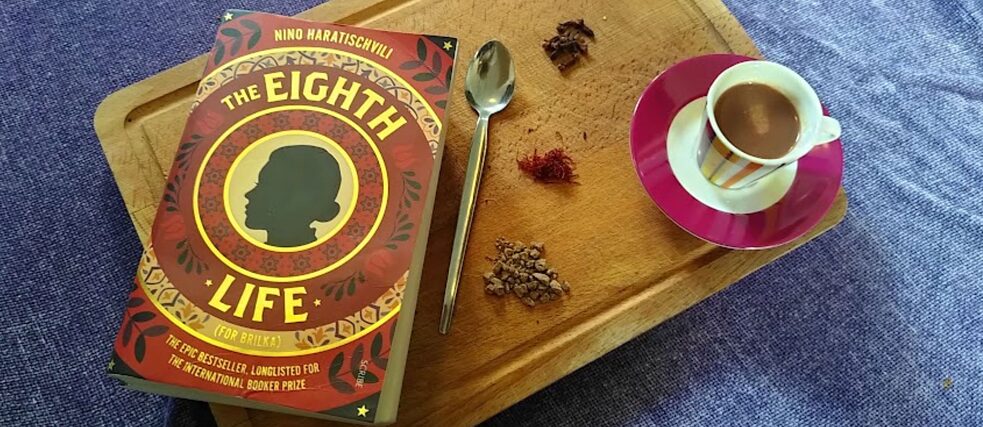August 2022
Nino Haratischvili:
The Eighth Life (For Brilka)

If you enjoyed the wide-ranging storytelling in White Teeth, then make sure you add Nino Haratischvili’s The Eighth Life (For Brilka) to your TBR pile.
I have to confess: I’m not always a fan of books that can double as doorstoppers. Perhaps it’s a side-effect of often reading to a deadline, but give me a novella any day. I love the way shorter books make us read between the lines, the way they dip into the story and hold up moments to the light.
There are times though, when sinking into a good story that won’t let you go for at least 500 pages is the best thing you can do. Zadie Smith’s phenomenal debut White Teeth is one of my favourite doorstoppers, telling the tale of two London families against the backdrop of the second half of the twentieth century. It’s impossible for me to do justice to quite how much I love White Teeth, with its humour, the complexity of its characters, the way the book remains generous and hopeful even through its more harrowing moments.
If you enjoyed the wide-ranging storytelling in White Teeth and are a fan of a saga told down the generations, then make sure you add Nino Haratischvili’s 900-page epic The Eighth Life (For Brilka), translated exquisitely by Charlotte Collins and Ruth Martin, to your TBR pile. Following five generations of a Georgian family through ‘the red century’, Haratischvili shows her characters as not simply living against the background of history but rather as endlessly caught up in it – from Stasia, the headstrong dancer whose life is turned upside down when the lieutenant she marries has to choose between White and Red, to her great granddaughter Niza, who flees post-Soviet Georgia for Berlin but never really finds herself a home. It is Niza who narrates her family’s stories, compiling them for her twelve-year-old niece, Brilka, and her apparent honesty in recounting both her research and her guesswork had me reaching for Google at points, half convinced that this Russian musician or that Prague Spring protester must have been a real person.
Niza describes her family’s history as an ornate carpet with many interwoven threads. One of those threads is made up of the songs of Kitty Jashi, Stasia’s daughter, who (as an indirect result of the most harrowing scene in the book) is forced to flee the Soviet Union and make a new life for herself in London. Another is the intoxicating, enchanting hot chocolate developed by Stasia’s father, whose recipe remains a closely guarded secret throughout the century, with some convinced that the drink is somehow cursed.
The Eighth Life is perhaps above all a story of how we survive, of the choices we make to protect the people we love, of the impossibility of outsmarting history. Occasionally, I’ll admit, I wanted a little less surviving and a little more thriving – I wanted Stasia to keep on dancing, and Niza to find happiness in Berlin. Nonetheless, this is an engrossing and evocative book, which stays with you long after you finish the last page.
About the author
Annie Rutherford makes things with words and champions translated literature in all its guises. A writer, translator and events organiser, she's currently researching the possibility of setting up a Writers in Exile residency in Edinburgh, and also runs Lighthouse Bookshop's Women in Translation book group. She can spot a misplaced apostrophe at a distance of fifty yards.Reserve the English translation The Eighth Life in our London library.
E-Library: Borrow the original German title Das achte Leben digitally.
Find out more about the blog.
Book Blog Overview